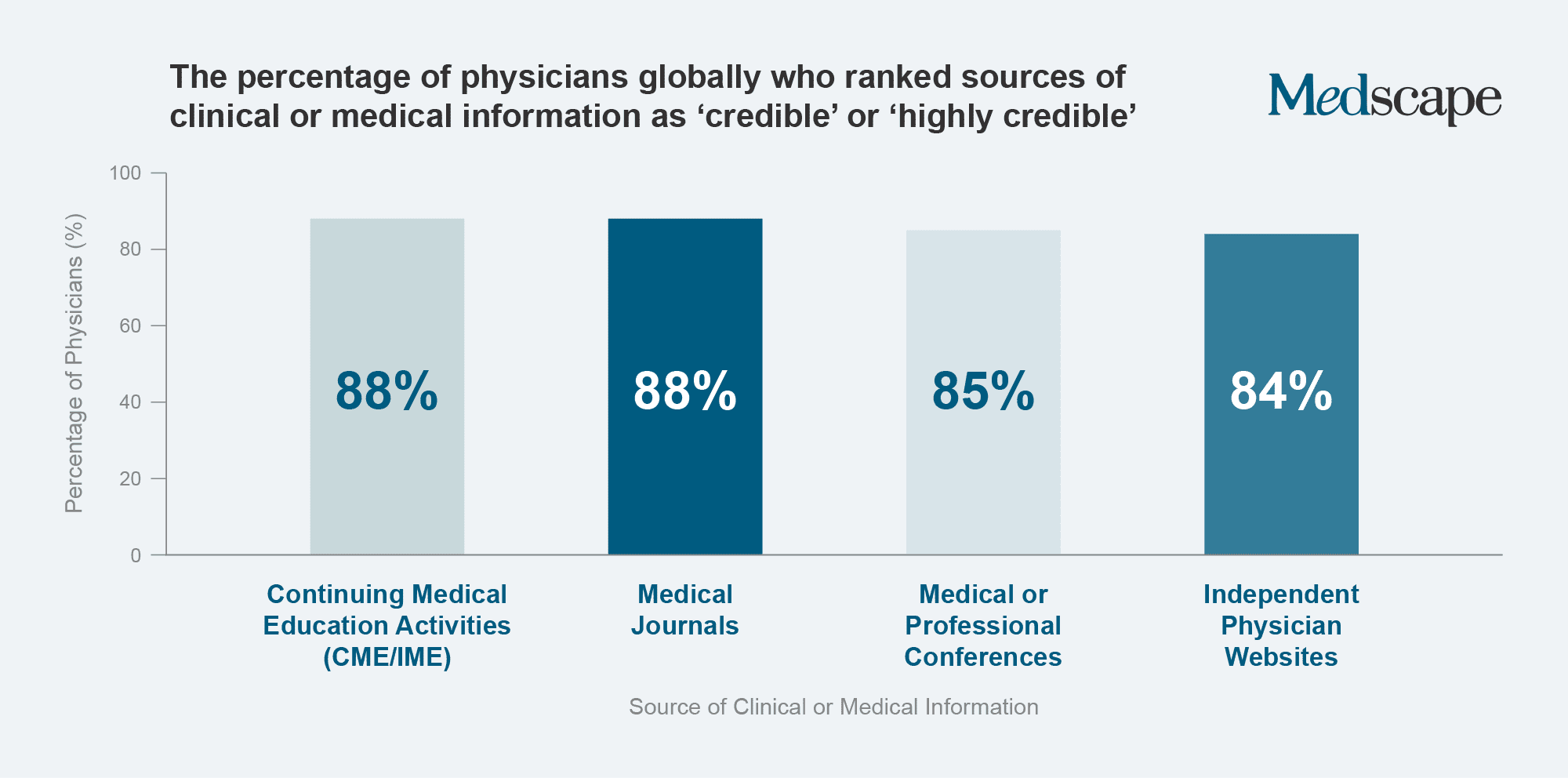
The pandemic has had an undeniable impact on the interactions between healthcare professionals (HCPs) and the pharmaceutical industry, with the shift towards virtual engagement and online events likely to be long-lasting.
While the consumption of online medical content is growing and traditional in-person meetings are still not completely back on the agenda, how can pharmaceutical companies reimagine the way they reach their target audience, to maintain their share of voice and foster their relationships with their key customers?
With over 12,000 participants in key specialties across Europe, Latin America, Canada, Asia and MENA, the recent Global Physician Specialty Survey is Medscape’s latest and largest ever source of insights highlighting online content consumption habits of HCPs across the globe.
The key takeaway is physicians are incredibly time poor, and when they engage with the pharmaceutical industry they increasingly want to do so on their own terms. Compared to traditional in-person interactions, digital offers HCPs the flexibility they need. It is therefore no surprise that over half of the respondents rated their online consumption of digital content higher or much higher than before the pandemic, with the sharpest increase in Latin America.
So, what type of digital content are HCPs most likely to interact with online? And, most importantly, where do they search for it? Overall, the survey reveals a preference for traditional, well-established formats that can be declined for digital, rather than more disruptive digital tools. Text-based communication formats such as articles (52%) are still king across all regions. These are followed by live/on-demand webinars or conferences (32%), interactive guidelines decision tools (29%) and slideshows (27%). Short videos are more popular in Latin America (30%) and Asia (29%) than in Europe (22%). Interactive assets such as quizzes (18%), eDetails (17%) and patient simulations (15%) are also appreciated across all regions, while podcasts rank last, with only 6% of HCPs embracing them globally. Tight schedules also mean physicians are twice as likely to participate in an on-demand/recorded event rather than a live event.
When it comes to searching for reputable information online, the most credible sources of clinical or medical information globally (shown as the percentage of physicians who ranked the sources as credible/highly credible) are Continuing Medical Education activities (CME/IME, 88%), medical journals (88%), medical or professional conferences (85%) and independent physician websites (84%). In comparison, pharma-owned channels are perceived to be only half as credible, with 43% and 35% of respondents ranking pharma websites and sales representatives, respectively, as equally trustworthy.
How would HCPs like to receive information from the pharma industry in the future then if they don’t expect in-person interactions to be returning to pre-pandemic levels any time soon? European (49%), Asian (46%) and MENA (45%) HCPs have a marked preference for visiting professional independent websites rather than receiving pharma emails. So, does this suggest that pharma companies are in danger of saturating their target customers through their own digital channels? Almost 40% of respondents seems to agree, as they consider the volume of emails received from pharma to be high or too high.
These survey findings are a further reminder that physicians are much more likely to engage when content is delivered via independent sources they already use and trust. Choosing these digital channels can only help pharma connect with them more effectively. This is easier said than done, as many pharma companies still have a desire to control the engagement on their own terms and direct customers to their own channels and websites. Adjusting this approach to focus more on customer centricity, even when this means relinquishing control and working with third parties to deliver the message more effectively, can only benefit both sides.
The pharma industry is at a crossroads, accelerated by the pandemic. Pharma now has the opportunity to strengthen the progress of the past 18 months and embrace this digital transformation, integrating its messages within a number of existing touchpoints along the online journey of its target audience, observing what’s working, constantly optimising it and ultimately moving towards a more customer-centric way of adaptively engaging with HCPs.
Michael Brandreth is Group Vice President of Medscape




